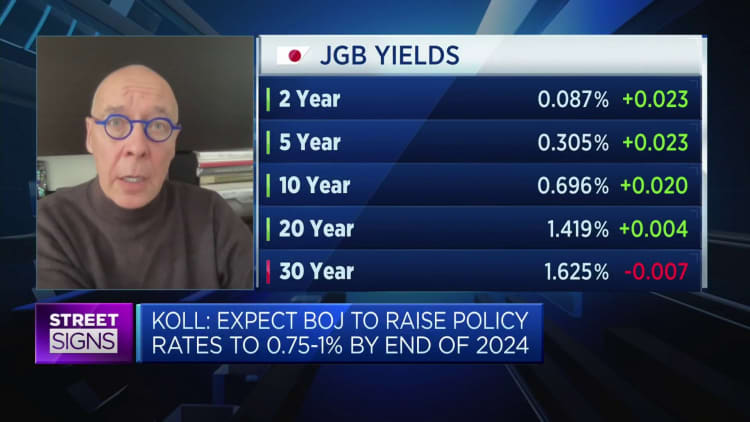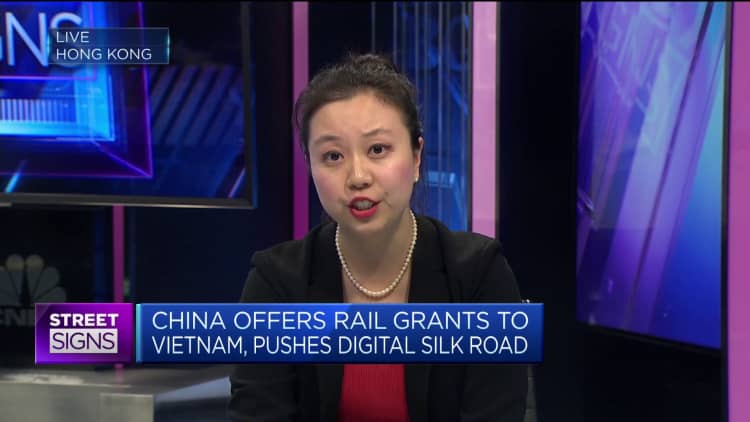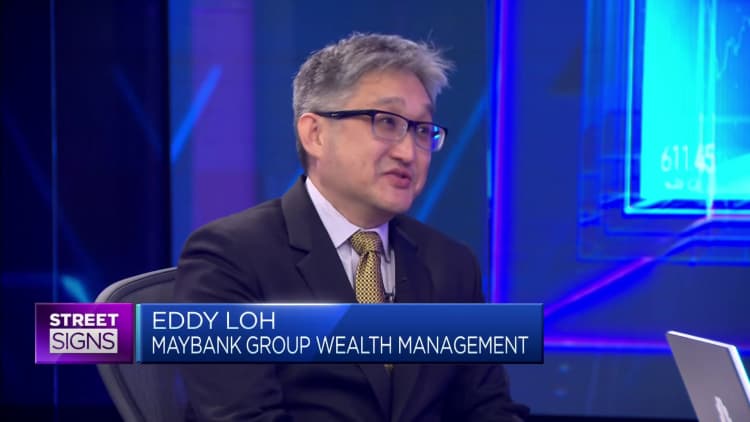Japan’s Nikkei 225 has been the top performer this year, among large economy stock indexes in Asia and many believe that stocks in the region have more room to run in 2024.
Marco Bottigelli | Moment | Getty Images
Asia-Pacific markets rose to new highs in 2023, with Japan’s Nikkei 225 emerging as the top-performing equity index. The region is expected to continue its good run into the next year as well.
So, which markets will outperform in 2024?
According to analysts that spoke to CNBC, Asia-Pacific’s top-performing markets in the first half of 2024 will be India, Japan and Vietnam — here’s why.
1. India
India’s stock market emerged as one of the region’s favorite last year and investors are bullish on the country’s long-term prospects.
The benchmark Nifty 50 index gained 20% in 2023, and hit a string of record-highs.
India’s economic growth is expected to outpace other major Asian economies in 2024, with the International Monetary Fund projecting the country’s real GDP to expand by 6.3% this year, the same rate as is expected for 2023.
India’s growth prospects have been a powerful driver for its stocks at a time when its neighbor and the region’s biggest economy, China, was seen struggling to meet its target of 5% GDP growth for 2023.
Indian stock markets have also benefitted from strong earnings, imminent interest rate cuts and greater participation from domestic investors. All of which are expected to carry the Nifty 50’s record rally into the next year.

The wildcard for 2024 will be the country’s general elections. Strategists from J.P. Morgan said in a note that they see the Nifty 50 hitting 25,000 next year, if the ruling nationalist Bharatiya Janata Party retains power.
The target of 25,000 represents a more than 15% upside from the index’s last close of 21,710.
However, JPM warned that “if the general election results are unexpected, along with a global recession, geopolitical tensions, higher oil prices, or higher domestic unemployment,” the Nifty could fall to 16,000.
2. Japan
Japan’s Nikkei 225 was the top performing stock index in Asia last year, and analysts believe the country’s equity markets have more room to run in 2024.
The rally in Japan stocks saw the the blue-chip Nikkei 225 gaining 28% last year and the broader Topix ending 25% higher.
Japanese stocks were boosted by strong earnings and growing hopes that the Bank of Japan may finally end its ultra easy monetary policy after decades of near-zero interest rates.
Masashi Akutsu, a strategist at BofA Global Research said he expects the rally in Japan markets to continue well into 2024, also noting a rise in foreign investments.

Strategists at BofA see the Nikkei 225 touching 37,500 by the end of 2024. The index currently trades at around 33,464.17.
Akutsu said technology and banks were BofA’s top picks for next year, as the sectors balance out a portfolio with both growth and value-focused stocks, at a time when markets expect the Bank of Japan to end its ultra-loose monetary policy.
The BOJ’s wrapped up its final meeting of 2023 leaving interest rates within the negative territory at -0.1%, while sticking to its yield curve control policy that keeps the upper limit for 10-year Japanese government bond yield at 1% as a reference.
A slowing economy and cooling inflation, however, could pose as a potential challenge for the BOJ when it comes to unwinding its ultra-easy stance. Investors will also keenly await the annual spring wage negotiations next year to confirm a trend of any meaningful increases to wages.
3. Vietnam
Just like India and Japan, Vietnam has benefited from the “China plus one” strategy with companies diversifying investments to help reduce their reliance on China.
The country expects to see a 6% to 6.5% GDP growth in 2024 on the back of robust imports and exports, as well as stronger manufacturing activity.
The optimism in the Vietnamese market has also led to a more than 14% surge in foreign direct investments last year compared with 2022.
According to LSEG data, $29 billion in foreign direct investments were pledged to Vietnam from January to November last year.
China accounts for half of the new FDI inflows into Vietnam this year, reflecting the attractiveness of the Southeast Asian nation as a rising manufacturing hub, Yun Liu, ASEAN economist at HSBC said.

Now is the right time for investors to enter Vietnam stocks, Andy Ho, chief investment officer of VinaCapital Group said.
“Over the next 6 to 12 months, Vietnam will be a good market as valuations are inexpensive at about 11 to 12 times earnings for 2023. That’s about a 20% to 25% discount to the regional average,” Ho told CNBC.
“The average daily trading volume in Vietnam has gone from $500 million a year ago to about a billion dollars daily today,” he said, elaborating that investment opportunities can be found in consumption, healthcare and real estate sectors.
“People are beginning to recognize that when they have a lot of liquidity, they don’t want to put it in the bank because the interest rates now becoming uninteresting, and then looking at other options to invest.”
A worker scans and checks an item on the shelves of a Tiki.vn warehouse in Ho Chi Minh City, Vietnam, on May 24, 2021.
Yen Duong | Bloomberg | Getty Images
Investors should also be bullish on Vietnam’s e-commerce sector, Tyler Nguyen, vice-president and head of institutional equity sales at Maybank Securities Vietnam said.
“We are seeing 20-30% year-on-year growth every year,” he told CNBC, pointing out that e-commerce accounts for only 2-3% of retail sales.
When asked about Vietnam’s possible entry into MSCI’s list of emerging market economies, Nguyen said the frontier economy was still “at a very nascent stage” but “we might see good news in 2025.”
Is China still worth a play?
Chinese consumer confidence has not recovered from the pandemic due to high youth unemployment, debt risks, and a perilous property sector, causing consumption habits to become more “rational,” Jefferies said in a note.
Although pessimism in the Chinese market is unlikely to dissipate soon, analysts say there are still bright spots.
Jefferies expects sales growth to normalize next year and has advised investors to look at consumption sub-sectors such as beer and sportswear. Maybank also prefers the consumer sector, besides China’s “new economy” segment.

Jefferies is also bullish on China’s healthcare sector, recommending investors to “cherry-pick” stocks that are poised to see better-than-expected growth and margin expansion.

